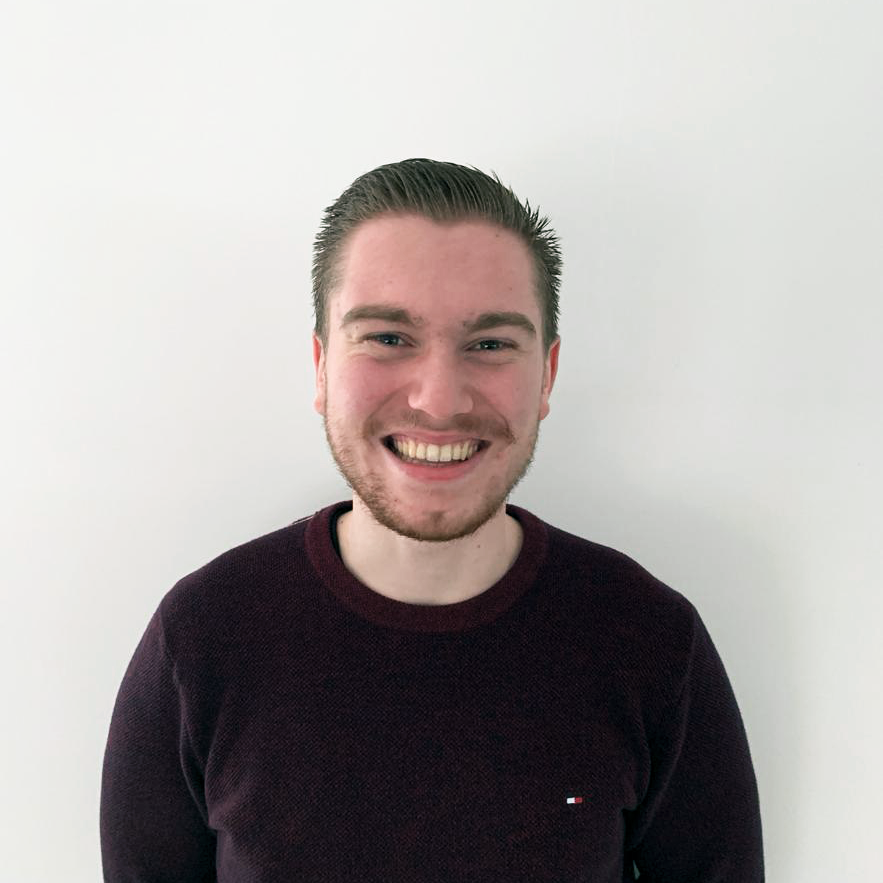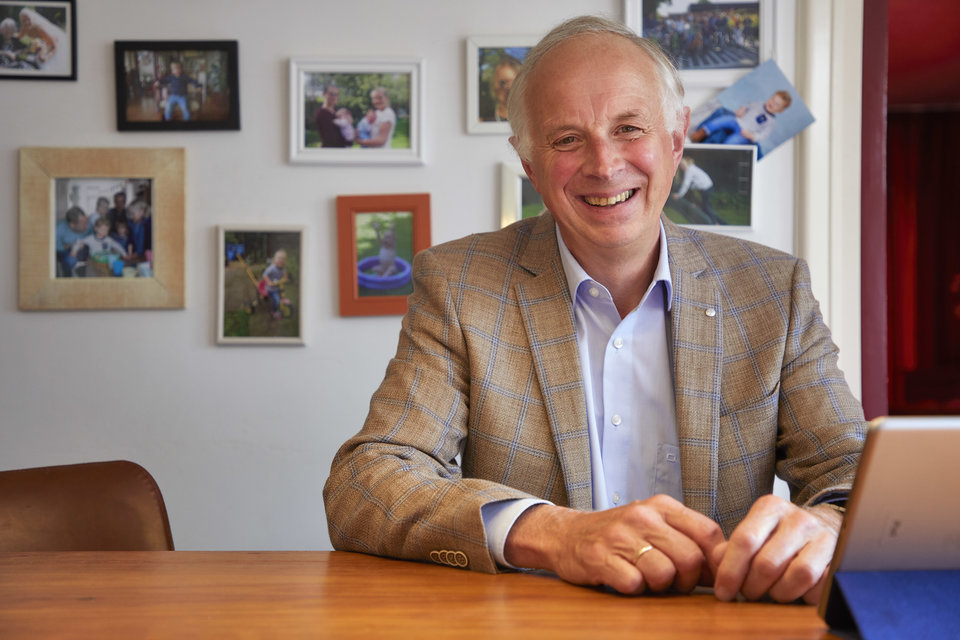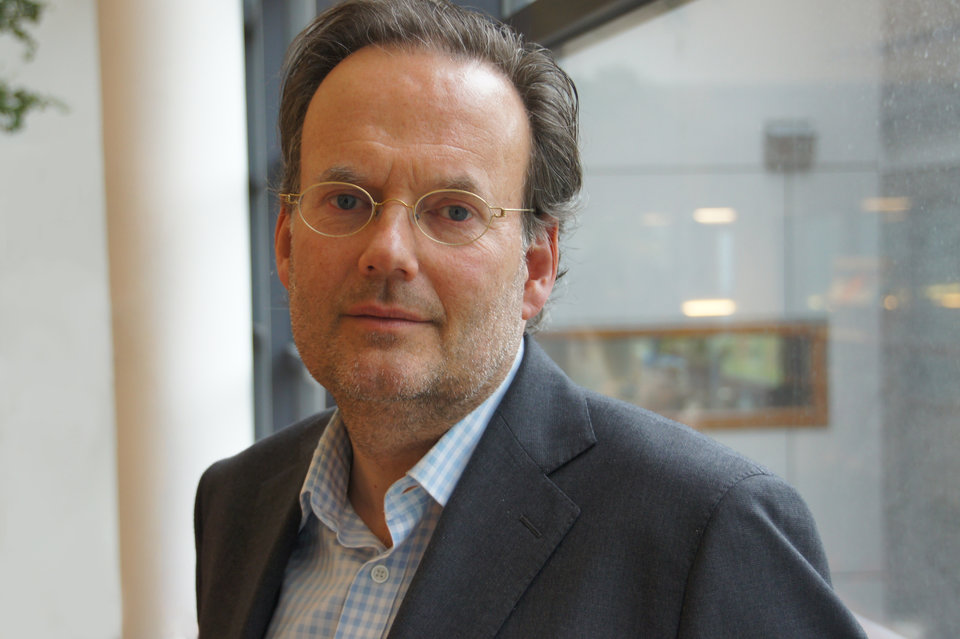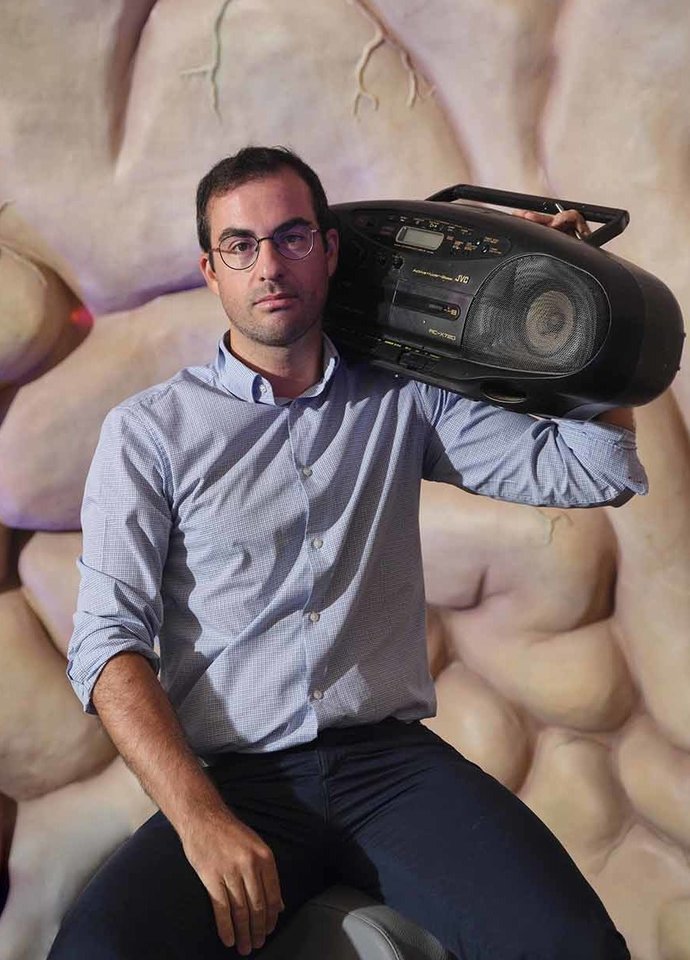Anchoring Power: Ensuring Control and Stability in Offshore Energy Hubs
We rely on electricity daily, from checking our phones in the morning to grabbing breakfast from the fridge. We drive to work in electric cars and spend much of our day on computers. And just like our internet connection, we need our power supply to be stable. That’s where Assistant Professor Aleksandra Lekić plays a key role. She focuses on the control and stability of High Voltage Direct Current (HVDC) power systems, including offshore energy hubs like wind farms and floating solar panels. Her work is vital in preventing major disruptions, such as blackouts, that could impact the entire power grid.
Multiple layers
Control is a wide topic. “Everything in the power system is controlled through multiple layers”, says Aleksandra. She emphasizes that control of the power system is vital. “We have to know how to control the system for it to work properly and to restore it after it malfunctions.”
“If the control doesn't work properly then the system is not stable”, she explains, “and then we cannot react to any uncertainties that might occur.” Fluctuations in the ecosystem can affect the power generation. “If it’s a less sunny day or if it’s less windy that has an effect. For example, when there are different windspeeds, the power generated by offshore wind farms varies. But through our control system, the voltage level is stable.”
Aleksandra leads a team of 5 PhDs and 8 Post Docs who specialize in the control of High Voltage Direct Current and Alternating Current (HVDC/AC) power systems. “We use analysis, algorithms, and computer models for our research, amongst other methods. An example of one of our research projects is that we have developed futuristic North Sea offshore energy hub models, which we use to determine what is needed to keep power output stable.”
An offshore energy hub is a localized group of various renewable energy sources situated at sea close to the shore. In the Netherlands, they are located in the North Sea. An offshore energy hub can mean an offshore wind farm or floating solar panels, and in the future, it might also include electrolyzers, which are devices that use electricity to split water into hydrogen and oxygen. Together, these multiple renewable energy sources are called an artificial energy island or an energy hub.
Offshore substations are also a part of offshore energy hubs. “Offshore substations can look similar to oil platforms but are entirely focused on renewable energy sources. An offshore substation is huge, it’s the size of a football field”, illustrates Aleksandra. The substation contains everything that is needed for the conversion of offshore-generated alternative current power, to high-voltage direct current, which is then transported to the shore. “Those big football field-sized substations are a big part of our control system, we can use them to ensure that the power supply is stable, even on days with less wind.”
Recycling old papers
Through control of the power system, Aleksandra works on shifting from fossil fuels to green, sustainable energy production. “Controlling the power system can be a very challenging topic, but it's crucial for the energy transition”, shares Aleksandra. “We have a commitment and obligation towards renewable energy. And through our work on power hubs, we generate energy locally. This also means that we will not be dependent on other countries for our power supply in the future.”
Aleksandra’s journey towards sustainability already started when she was young. “I destroyed our balcony because I completely covered it in wet newspapers”, she grins. “My mom wasn’t very happy with that, but it allowed me to discover how I could use the newspapers to create recycled paper.”
Black Start
Disturbances in the power system can be very severe. Aleksandra’s control efforts also ensure that the system can be restored in case of a blackout. “We have to think about how we can re-energize the entire system”, “This is called a black start”, Aleksandra explains. “Our control has a big influence on a black start because we can, for example, determine the starting sequence used to restart the power system.”
As a researcher, Aleksandra works on several projects. “One of these projects is called InterOPERA.” This project is working to realize a goal set by the European Union, which is to produce 300 Gigawatts of offshore wind by 2050 to reduce our dependence on fossil fuels and to meet climate goals. “And a big part of this project is also the re-energization of the power systems, in case of a blackout.”
I was always a bit of a weird kid. I was a bit introverted, and I always wanted to finish reading my book before anything else. I even finished reading an entire section in my hometown library at one point.
At the forefront
“At TU Delft we have a great renewable energy laboratory. We have connections with some of the biggest industrial partners (such as TenneT) and we have great academic partners as well. That means we have a lot of advantages in this field. We are also working with artificial intelligence.”
One of Aleksandra’s projects focuses on adaptive control for offshore energy hubs. “Adaptive means that we use machine learning to ensure that the offshore hubs themselves can learn how to react to weather fluctuations, for example.”
“I’ve garnered fundamental knowledge that I can use in my field. All of these aspects together put me at the forefront of my field of research. And that makes me very proud and excited! I feel like my curiosity and my eagerness to learn new things have led me to where I am now.”
Reading an entire section of the library
“I was always a bit of a weird kid”, Aleksandra says laughing. - And if you’ve met Aleksandra, you know her laugh is infectious. - “I was a bit introverted, and I always wanted to finish reading my book before anything else. I even finished reading an entire section in my hometown library at one point. I owned a herbarium with around 400 plants, and I was studying the Latin names of all of the plants. And I even had an insectarium.”
Aleksandra likes research and has a very wide range of interests. “I was always analytical in a way. I started as a mathematician. My primary school teacher noticed that I was talented when it came to mathematics. That’s when I started competing in mathematics competitions and I even reached advanced levels. I love it when you can put real life into mathematical equations and solve them”, she shares. Her wide interests continued into adulthood. She switched from Mathematics to Electrical Engineering. “I decided to study Electrical Engineering because to me it seemed like mathematics with a practical application. And also because in Serbia, where I’m from, it was easier to find a job as an engineer than when you’re a pure mathematician.”
Aleksandra also switched disciplines within the field of electrical engineering. “I think the word ‘squiggly’ describes my life well because it goes in all directions. My son taught me the word ‘squiggly’, which I think is amazing! My family is one of the most important things in my life. My job has to give me enough time to be with them.”
Interconnected offshore energy hubs
Even though she followed a ‘squiggly’ path, it has brought her very far. “We are not only looking at offshore energy hubs now, but we’re also looking at the future of the hubs.” One of the first things on the horizon is the expansion of energy hubs. “We will have multiple offshore energy hubs that are interconnected. There are a lot of ongoing projects to build substations and connect these stations with each other (for example with power cables).” The possibilities are enormous. “We are also working towards offshore energy hub connections between countries. One country can help stabilize the grid of the other one. Norway, for example, has very high electricity generation.”
One of the challenges of Aleksandra’s research is standardization or interoperability. “Different companies are working on these big substations. And to ensure that there is a normal market in this field, that should be the case. However, it can be difficult if these companies use different protocols or communication formats. Within the InterOPERA project, we are therefore testing if these different companies can have an interoperable operation, and can work in the same way.”
Aleksandra is excited for the future. “Research is ongoing, and we will probably have new kinds of renewable energy sources in the future.”
Big plans
“It fills me with a lot of energy to work with my team of researchers. I like building connections with people. My students bring me new ideas and perspectives. And I think it’s precious when you teach someone something new, and when you positively influence somebody. I want to continue to build my team of researchers.“
To wrap it up: Aleksandra Lekić. If you work in the energy field you better remember that name, because she has big plans.
“One of my personal goals for the near future is to become a full professor. I want to be a good researcher and make a name for myself within my field of research in the Netherlands, Europe, and beyond. I want to continue to advance the offshore energy field, and make a big impact on the energy transition!”









